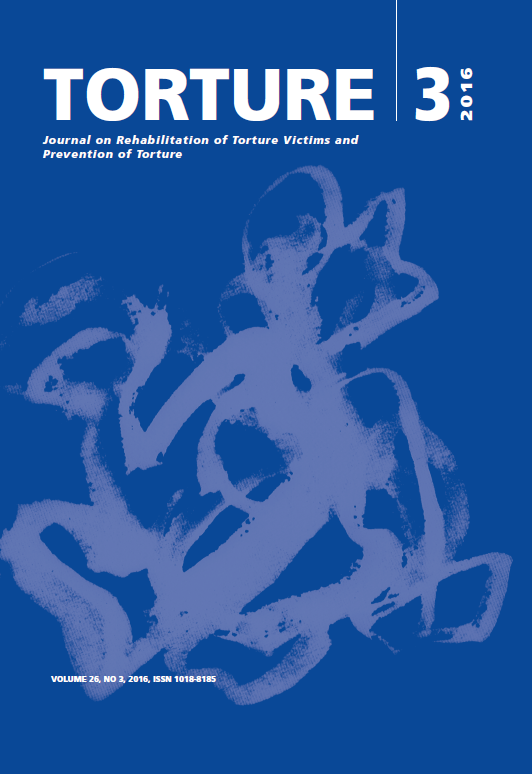Comment II: Documentation of Torture and Justice ‘Bon pour L`Orient’i?
DOI:
https://doi.org/10.7146/torture.v26i3.109503Keywords:
torture, rights, human justice, rehabilitation, perpetratorsAbstract
The study by Kelly et al. on the Istanbul Protocol (IP) was made in three low-income countries. It is based on eighty interviews of human rights practitioners who in “many cases… were lawyers, but clinicians and other human rights professionals were also included.” (p63) The study does not provide a breakdown of the individuals interviewed, their professions, or their experience in documentation and specifically medico-legal or IP documentation. The study does not assume interviewees had any prior knowledge of the IP. In addition, health professionals – a key group that implements the IP – do not appear to be well represented among the interview group.
References
2. IRCT Annual Report [Internet] 2015 Available from: file:///C:/Users/nawirctorg/Downloads/ IRCT-annual+report+2015.pdf
3. Physicians for Human Rights, Forensic Training Institute [Internet] Available from: http://physiciansforhumanrights.org/training/
4. Sharma JR. Documenting torture. Republica [Internet]. 2016 May 26 [cited 31 October 2016] Available from: http://admin.myrepublica.com/ opinion/story/42817/documenting-torture.html
Downloads
Published
How to Cite
Issue
Section
License
We accept that some authors (e.g. government employees in some countries) are unable to transfer copyright. The Creative Commons Licence Attribution-NonCommercial-NoDerivatives 4.0 International (CC BY-NC-ND 4.0) covers both the Torture Journal and the IRCT web site. The publisher will not put any limitation on the personal freedom of the author to use material contained in the paper in other works which may be published, provided that acknowledgement is made to the original place of publication.


